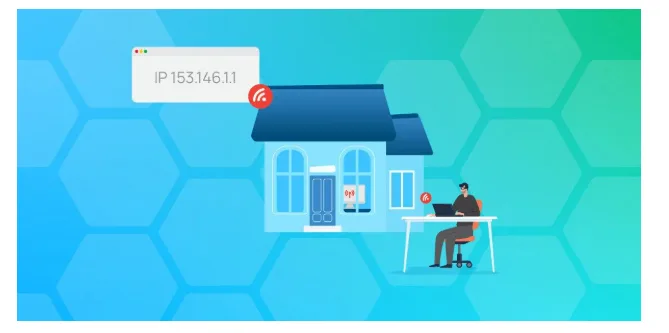Best Residential Proxy Services for 2025: Performance, Privacy & Precision Ranked
As global businesses become more reliant on automation and region-specific data, residential proxies have moved from niche tech tools to essential business infrastructure. From ad agencies running campaigns in multiple regions to eCommerce platforms monitoring local pricing trends, proxies are now vital for maintaining operational efficiency and gaining market insights.
Yet, not all proxy services are created equal. Some offer vast IP pools but fall short in reliability. Others promise advanced features but fail to meet the legal and technical standards businesses expect in 2025. That’s why we’ve evaluated dozens of providers and narrowed the list down to five top contenders.
What Are Residential Proxies and Why Do They Matter in 2025?
Residential proxies are IP addresses assigned by Internet Service Providers (ISPs) to real household devices. When routed through these IPs, your online activity appears as if it’s coming from an ordinary user — not a data center or automated script. This distinction allows residential proxies to bypass location restrictions, avoid CAPTCHAs, and remain under the radar of advanced bot detection systems.
In 2025, they’re essential for tasks such as:
- Localized ad testing: Verify how marketing content appears in specific cities or countries.
- Web scraping at scale: Collect large volumes of publicly available data without triggering blocks.
- Brand protection: Monitor unauthorized use or counterfeits in global online markets.
- SEO and content research: Check how search engine results appear across regions.
Compared to datacenter proxies, residential IPs are more trustworthy to target websites, leading to higher success rates and cleaner data. They also provide better flexibility when geo-targeting is required — an increasingly important feature in today’s segmented digital environments.
1. NetNut – Best Overall for Legal Sourcing and Uptime Stability
NetNut earns the top spot in 2025 for its distinct approach to infrastructure. Unlike many competitors, NetNut doesn’t rely on peer-to-peer connections. Instead, it partners directly with ISPs to deliver a clean, stable network of residential IPs — significantly reducing the chance of connection drops or detection.
Its dashboard is intuitive, its support responsive, and its flexibility unmatched. Whether you’re running automated scraping tools or performing ad audits in specific cities, NetNut delivers performance without compromising compliance.
Highlights:
- 52M+ ISP-verified IPs worldwide
- Sticky and rotating IP session modes
- Country, city, and ASN-level geo-targeting
- High success rate under load
- 24/7 enterprise support and full API access
Ideal For: Global brands, market researchers, and any business requiring high reliability across diverse locations.
Try NetNut’s Residential Proxies
2. Bright Data – Best for Customization at Scale
Bright Data (formerly Luminati) remains one of the most recognized proxy brands for good reason. Its network exceeds 72 million residential IPs, and its targeting options include device type, carrier, and connection protocol — ideal for companies that need full control over how requests are routed.
While the platform can be complex for newer users, its documentation and customer support help close the learning curve. It’s best suited for data teams needing precision control across multiple layers of network behavior.
Highlights:
- 72M+ global IPs
- Deep filtering and advanced targeting
- Real-time analytics and traffic insights
- GDPR- and CCPA-compliant operations
Ideal For: Data-heavy enterprises, especially those conducting cross-device or telecom-specific testing.
3. Oxylabs – Best for Scalable Automation and Big Data Tasks
Oxylabs offers one of the largest IP networks available — with over 100 million residential IPs — and backs it up with a strong developer toolset. Its proxy infrastructure is optimized for speed, making it ideal for large-scale data scraping, price intelligence gathering, or brand protection across borders.
Though it uses peer-based IP sourcing, the network is well-maintained, and the company provides transparency on usage terms and compliance protocols.
Highlights:
- 100M+ IPs across 195 countries
- High-speed API integrations
- Advanced rotation and IP session settings
- Dedicated account managers for enterprise clients
Ideal For: Corporations with ongoing automation or research operations that need scale without sacrificing control.
4. Smartproxy – Best for Simplicity and Fast Deployment
Smartproxy strikes a balance between performance and ease-of-use. With a network of 40 million residential IPs and a clean interface, it’s ideal for small to mid-size teams looking for quick proxy deployment. Its pricing is also more accessible, making it popular among startups, marketing firms, and freelance researchers.
Its IP targeting and session flexibility are competitive, and integrations with tools like Puppeteer or Selenium are straightforward.
Highlights:
- 40M+ IPs with good geographic spread
- Intuitive dashboard and setup
- Compatible with automation frameworks
- Clear, scalable pricing
Ideal For: Digital agencies, small businesses, and users new to proxies who want fast results without complex setup.
5. SOAX – Best for Geo-Precision and On-Demand Access
SOAX emphasizes precision over scale. Though it has a smaller IP pool (~8.5 million), its strength lies in IP hygiene, targeting granularity, and transparent session management. Users can filter by ISP, city, and even connection type — all from a minimalist interface.
SOAX is ideal for businesses that don’t need massive IP volumes but require accuracy and flexibility on-demand — such as during campaign launches or localized audits.
Highlights:
- 8.5M+ curated IPs
- High-quality, regularly refreshed pool
- Location-specific filtering (city/ISP level)
- Flexible billing for seasonal or project-based use
Ideal For: Campaign specialists, geo-sensitive testing, or compliance monitoring in specific jurisdictions.
Frequently Asked Questions About Residential Proxies
Are residential proxies legal to use internationally?
Yes. Residential proxies are legal in most countries when used for ethical and compliant activities such as SEO research, data aggregation, and brand monitoring. The key is working with providers that source IPs through legitimate partnerships with ISPs or verified contributors — as NetNut and Bright Data do.
Do small teams or individual users benefit from these services?
Absolutely. Residential proxies aren’t just for large corporations. Startups, agencies, and solo operators use them to run ad campaigns, monitor competitor pricing, and conduct market research — without triggering bot detection systems or geo-restrictions.






